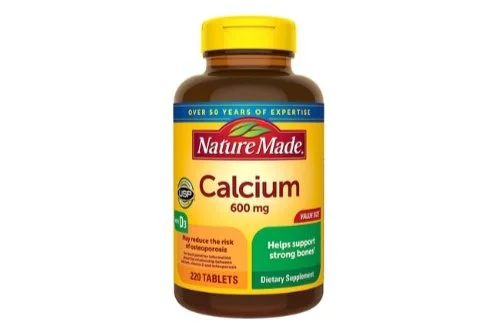Carnivore Diet and Potassium Rich Foods
Balancing Your Intake
The carnivore diet, an all-meat regimen, has been gaining popularity among those seeking an alternative nutritional approach. This diet focuses solely on animal products, excluding all plant-based foods. Within this restrictive dietary framework, individuals may find the concept of fulfilling all nutritional needs, particularly obtaining adequate potassium, challenging. Potassium, a crucial mineral, plays a vital role in maintaining fluid and electrolyte balance, regulating blood pressure, and ensuring proper functioning of the heart and kidneys.
Consuming sufficient potassium on a carnivore diet requires a strategic selection of animal foods, as some are richer in this mineral than others. On this diet, strong sources of potassium include meat, fish, and organ meats. Such foods not only adhere to the strict dietary guidelines but also contribute to avoiding deficiencies that can impact muscle and nerve function. Careful attention to the intake of these potassium-rich animal products can help carnivores meet their nutritional requirements while adhering to the diet’s principles.
Despite its restrictive nature, the carnivore diet can still provide the necessary potassium to support key body functions, notably heart health and kidney function. Questions often arise regarding the long-term sustainability and health outcomes of this diet pattern, but with mindful consumption of diverse animal-based potassium sources, it is possible for adherents to maintain electrolyte balance. Nonetheless, it remains crucial for individuals following this diet to monitor their health metrics regularly to prevent potential risks such as heart disease or nutrient deficiencies.
Understanding the Carnivore Diet
The carnivore diet focuses on consuming exclusively animal products, positing that it can meet nutritional needs without plant-based foods. This diet emphasizes high intake of proteins and fats while eliminating carbohydrates entirely.
Principles of the Carnivore Diet
The carnivore diet is characterized by the consumption of meat and other animal products as the sole source of nutrition. Proponents believe that this diet can provide all the necessary vitamins and minerals, primarily through the intake of a variety of meats including beef, chicken, pork, and fish, as well as organs and bone broth. The diet is often considered a zero-carb diet, as it excludes plant-based foods completely, placing the body in a state of ketosis, similar to what is achieved with a ketogenic or keto diet.
Key components of the carnivore diet include:
Meat: Beef, chicken, pork, lamb, and other meats form the foundation.
Animal Products: Eggs, lard, bone marrow, and butter are staples.
High-Fat: Fat provides a major portion of the daily caloric intake.
Protein: Consumed in high quantities for satiety and muscle maintenance.
This diet suggests that animal tissues contain all necessary nutrients in their correct ratios, and it is positioned as a natural way for humans to eat, mirroring evolutionary dietary patterns.
Comparison with Other Diets
Other low-carb diets like the paleo diet and the keto diet share similarities with the carnivore diet, but there are key differences. The paleo diet permits fruits, vegetables, nuts, and seeds while the carnivore diet does not. The keto diet allows for low-carb vegetables and often includes a higher proportion of high-fat foods to induce ketosis.
The main differences are summarized below:
Carnivore Diet:
Carbohydrates: None (Zero-Carb)
Food Variety: Animal products only
State Induced: Ketosis
Keto Diet:
Carbohydrates: Low (Under 50g/day)
Food Variety: More inclusive but still limited to maintain ketosis (includes some dairy, nuts, and low-carb vegetables)
State Induced: Ketosis
Paleo Diet:
Carbohydrates: Moderate
Food Variety: Includes a variety of plant foods along with meats, excluding processed foods and grains
State Induced: None (not specifically aimed at inducing ketosis)
While ketogenic and paleo diets allow for some plant-based intake, the carnivore diet strictly focuses on animal sources. Each diet has its own purported benefits and challenges, with the carnivore diet being on the most restrictive end of the spectrum.
Role of Potassium in the Body
Potassium is a mineral that serves as a critical electrolyte in the body, essential for various physiological functions. It is instrumental in maintaining proper muscle function, heart health, and the regulation of blood pressure.
Potassium and Muscle Function
Potassium helps to regulate muscle contractions and is important for normal muscular function. It works in tandem with sodium to maintain a proper electrolyte balance across cell membranes, which is critical for the transmission of nerve signals that prompt muscle contraction. Low levels of potassium can lead to muscle cramps and weakness.
Potassium and Heart Health
This mineral's role in the body extends to maintaining heart health. Potassium helps to regulate the heart's rhythm, and sufficient levels are required for consistent, strong, and regular heartbeats. It also contributes to heart muscle function by helping with the electrical activity that controls the heart's pumping action.
Potassium and Blood Pressure Regulation
Blood Pressure Regulation by Potassium:
Regulation Mechanism: Potassium aids in relaxing blood vessel walls, which has a direct influence on lowering blood pressure.
Interaction with Other Electrolytes: It counteracts the effects of sodium, a known contributor to hypertension.
Role of the Kidneys: The kidneys help to control blood pressure by managing the balance of fluid and electrolytes, including potassium.
Balanced levels of potassium are vital for the kidneys to function properly, filtering blood and regulating fluid levels that impact blood pressure.
Sources of Potassium in a Carnivore Diet
Potassium is vital for maintaining electrolyte balance and muscle function. In a carnivore diet, which excludes plant-based foods, one must rely on animal-based products to meet the recommended potassium intake. The following sections detail the potassium content in various carnivore-friendly food categories.
Potassium in Red Meat and Organ Meats
Red Meat: (What wine goes well with red meat?) Beef, lamb, and pork are good sources of potassium. For instance, a 3-ounce serving of cooked beef contains approximately 315 milligrams of potassium.
Organ Meats: Liver, particularly beef liver, is rich in potassium, with about 380 milligrams per 3.5 ounces.
Examples of potassium content in common red meats and organ meats:
Cooked Beef:
Potassium Content: Approximately 315 mg
Potassium Content: Approximately 380 mg
Cooked Pork:
Potassium Content: Approximately 340 mg
Lamb:
Potassium Content: Approximately 305 mg
Seafood as a Source of Potassium
Fish: Cold-water fatty fish like salmon (What wine goes well with salmon?) are excellent sources, with a single 3-ounce serving providing roughly 500 milligrams of potassium.
Shellfish: Varieties such as clams (What wine goes well with clams?) can also bolster one's potassium intake, with clams offering about 534 milligrams per 3 ounces.
Examples of potassium content in various seafood:
Food Item and Potassium Content (3 oz serving)
Salmon:
Potassium Content: Approximately 500 mg
Clams:
Potassium Content: Approximately 534 mg
Atlantic Halibut:
Potassium Content: Approximately 490 mg
Dairy Products Rich in Potassium
Milk: A cup of milk can provide approximately 380 milligrams of potassium.
Cheese: Cheese, especially those like cheddar, add measurable amounts of potassium to the diet with about 20 milligrams per ounce being typical.
Examples of potassium content in common dairy products:
1 Cup Milk:
Potassium Content: Approximately 380 mg
1 oz Cheese:
Potassium Content: Approximately 20-30 mg
The carnivore diet demands careful attention to the selection of potassium-rich animal foods to ensure adequate mineral intake for optimal health.
Nutritional Considerations on the Carnivore Diet
The carnivore diet is comprised exclusively of animal products and emphasizes a high intake of protein and fat. While rich in certain nutrients, it poses unique challenges for achieving a balanced intake of vitamins and essential minerals.
Vitamins and Essential Nutrients
Animal-based foods on the carnivore diet generally provide an abundance of vitamins B12 and D, iron, zinc, and selenium. However, some crucial vitamins such as Vitamin C and certain B vitamins are typically more abundant in plant-based foods. Individuals often assume that the carnivore diet can lead to a deficiency in Vitamin C due to the absence of fruits and vegetables; however, organ meats offer some Vitamin C content, though lower than typical sources like citrus fruits.
To ensure nutrient density, an emphasis on diverse animal products including different types of meat, fish, and eggs is necessary. Seafood, for example, contains omega-3 fatty acids important for cardiovascular and brain health.
Addressing Potential Nutrient Deficiencies
The restricted nature of the carnivore diet can potentially lead to nutrient deficiencies. Key minerals such as calcium and magnesium, often abundant in dairy and plant-based foods, may be insufficient in a carnivore eating pattern. It is imperative to research and understand which animal foods can offer these essential nutrients. For example:
Calcium: Sardines and dairy (if included)
Magnesium: Bone broth and certain fish
Incorporating a range of animal foods and considering supplements can be necessary to address potential nutrient deficiencies.
When it comes to calcium and magnesium supplements, online shopping is the way to go!
Integrating Organ Meats for Nutrient Density
Organ meats are known for their nutrient-dense profiles and are an excellent way to boost micronutrient intake on the carnivore diet. For instance, liver is rich in Vitamin A, B vitamins, iron, and copper, while heart provides CoQ10, an important compound for heart health. They can be an integral part of the diet to ensure a sufficient supply of various vitamins and minerals that one might miss when solely consuming muscle meats.
Health Benefits and Risks
Exploring the carnivore diet from a nutritional perspective reveals its potential health benefits in weight management and metabolic health, its effects on inflammatory and autoimmune conditions, and the array of risks associated with such a restrictive eating plan.
Weight Loss and Metabolic Health
The carnivore diet may lead to weight loss due to its low carbohydrate content, pushing the body into a state of ketosis, where fat is burned for energy. Followers often report increased energy levels and a reduction in appetite, which could contribute to weight loss. However, concerns arise over the long-term sustainability and potential impacts such as nutrient deficiencies and high saturated fat intake, which can influence heart disease and high blood pressure.
Impact on Inflammation and Autoimmune Conditions
Anecdotal evidence suggests that the carnivore diet might reduce inflammation and improve symptoms of autoimmune conditions. The elimination of potential allergenic foods like grains, nuts, and seeds could lower the body's immune response. Yet, there is a lack of robust scientific data backing these claims, and the health benefits of removing plant-based sources of antioxidants and fiber are highly disputed.
Potential Risks and Side Effects
The diet's emphasis on high consumption of red meats raises concerns due to increased saturated fat and cholesterol intake. Potential risks include an elevated risk for heart disease and increased strain on the kidneys. Side effects may include constipation, due to the absence of dietary fiber, and imbalances in electrolytes like magnesium and potassium. Monitoring kidney function and nutrient intake is crucial for those considering this diet.
Adapting to the Carnivore Diet
When transitioning to a carnivore diet, individuals must consider meal composition, dietary changes from plant-based patterns, and the long-term sustainability of their dietary choices.
Meal Planning and Preparation
Proper meal planning is crucial for meeting nutritional needs while following a carnivore diet. One must focus on balancing their intake of protein and fat, as these are the primary sources of calories. It is important to include a variety of animal products to obtain a range of nutrients. For instance, including dairy can provide a source of fat and sodium, which are essential for bodily functions. Here is a simple table to assist with meal planning:
Ribeye Steak (What wine goes well with ribeye steak?):
Fat Content: High in fat
Notes: Ribeye steak is a flavorful cut that provides a significant amount of calories and fat, which can be beneficial for those on high-energy diets.
Ground Beef:
Fat Content: Moderate to high (varies based on lean-to-fat ratio)
Notes: Ground beef is versatile and easy to prepare, suitable for a variety of dishes. Choose leaner versions for lower fat content.
Pork Loin:
Fat Content: Low to moderate
Notes: Pork loin is a leaner pork option that can be a good source of protein with a lower fat content compared to other cuts of pork.
Wild-caught Salmon:
Fat Content: High in omega-3 fatty acids
Notes: Salmon is not only a great source of protein but also provides beneficial omega-3 fatty acids that are important for cardiovascular health.
Fat Content: High in fat and sodium
Notes: Bacon is rich in flavor and fat, but it should be consumed in moderation due to its high sodium content and the potential health impacts of consuming too much processed meat.
Transitioning from a Plant-Based Diet
Individuals moving from a plant-based diet to a carnivore regimen need to gradually introduce animal-based foods to allow their bodies to adjust. They may initially experience changes in digestion, focus, and sleep patterns. It's important to ensure hydration by drinking ample water because a higher intake of protein can lead to increased demand for fluids.
Sustainability and Long-Term Considerations
The carnivore diet is a high-fat, low-carb approach, much like the ketogenic diet, which has been associated with weight loss and improved metabolic health. However, one must consider the diet's long-term nutrition impact, ensuring adequate intake of vitamins and minerals, which are primarily obtained from plant-based foods. It is also worth noting the environmental impact of a carnivore diet and whether it aligns with personal values regarding sustainable eating practices.
Criticism and Controversies
The Carnivore Diet, with its high intake of red meat and exclusion of plant-based foods, has stirred significant debate regarding saturated fat, heart health, and environmental ethics. Proponents tout meat-based nutrients while opponents raise concerns about long-term health and sustainability.
Debate on Saturated Fat and Heart Health
The Carnivore Diet is rich in beef and other red meats, which are primary sources of saturated fats. Critics argue that high saturated fat intake is linked to increased cholesterol levels, which can raise the risk of heart disease. However, supporters of the diet dispute the strength of this connection, suggesting that the body's cholesterol response to saturated fat is complex and not solely detrimental.
Environmental and Ethical Concerns
Environmental Impact: The production of red meat, a staple of the Carnivore Diet, is often criticized for its high environmental footprint, including greenhouse gas emissions and land use. The diet's exclusion of more sustainable plant-based foods like vegetables, fruits, grains, and beans exacerbates these concerns.
Ethics: Ethics come into play with animal welfare. Ethical objections to the Carnivore Diet stem from the view that it requires a high rate of animal slaughter, raising concerns about animal rights and welfare.
Contrast with Plant-Based Diet Advocacy
Nutritional Balance: Advocates for plant-based diets argue that such diets provide a better balance of nutrients, including fiber, vitamins, and minerals, through a varied intake of vegetables, fruits, legumes, nuts, and seeds. They posit that the Carnivore Diet's omission of these foods can lead to deficiencies in these important nutrients.
Fiber Intake: Plant-based diets are rich in fiber, sourced from grains, legumes, and beans, while the Carnivore Diet lacks dietary fiber. This difference has sparked discussions about the potential long-term health consequences of inadequate fiber intake.
FAQs about the Carnivore Diet and Potassium
The carnivore diet, which prioritizes high-protein and fat intake from animal products, poses questions about nutrient balance, particularly regarding potassium. The section probes common inquiries, dispels myths, and presents expert insights on potassium within this dietary framework.
Common Questions on Nutrient Intake
How much potassium do individuals need on a carnivore diet?
Adults typically require 3 to 5 grams of potassium per day, which can be met with strategic food choices on a carnivore diet.
What are potassium-rich foods in a carnivore diet?
Fish, such as salmon and halibut, along with clams and beef, are significant sources of potassium for those following a carnivore diet.
Addressing Misconceptions
Is the carnivore diet too low in potassium?
It is a misconception that all-meat diets can't provide sufficient potassium. With the inclusion of a variety of meats, particularly organ meats, an adequate intake of potassium is attainable.
Does the carnivore diet cause high blood pressure due to low potassium levels?
Blood pressure concerns arise from an imbalance of sodium and potassium. A carnivore diet can be balanced by choosing meats like pork loin and making bone broth, which contribute to both sodium and potassium levels, potentially mitigating blood pressure risks.
Expert Opinions and Advice
What do nutritional experts say about potassium on a carnivore diet?
Nutrition experts recommend diversifying animal-based food sources and considering supplementation if necessary to meet the Recommended Dietary Allowance (RDA) for potassium.
Is supplemental potassium advised on a carnivore diet?
Supplements may be advised if potassium levels are low. However, they should be approached with caution; experts recommend pursuing food-based potassium sources initially and consulting healthcare providers for personalized guidance on supplements.
Conclusion
The carnivore diet is a regimen that primarily depends on animal-based products. Within this framework, potassium emerges as a significant concern due to its role in heart health, maintenance of blood pressure, and overall bodily functions. Individuals on such diets should be keen to select nutrient-dense foods that offer more bioavailable potassium.
Heart Health: It should be noted that potassium's effect on reducing heart disease risk is not definitive according to recent 2019 recommendations, yet its importance in maintaining normal blood pressure is widely accepted.
Nutrition: Maintaining the balance of this essential electrolyte is critical as it assists in nerve function, muscle contractions, and fluid equilibrium.
A list of potassium-rich foods suitable for a carnivore diet includes:
Bacon
Atlantic Halibut
Pork Loin
Ground Beef
Beef Ribs
Bone Broth
The bioavailability of potassium in these sources is generally high, making them a viable option for those concerned about their intake of this mineral on a restrictive diet. Additionally, supplementing with bone broth may offer an auxiliary benefit for replenishing electrolytes.
Lastly, those starting a carnivore diet may experience transient reductions in electrolytes like potassium, which parallel symptoms akin to "keto flu". Monitoring intake carefully and adjusting as needed is advised to ensure physical equilibrium and heart health.






